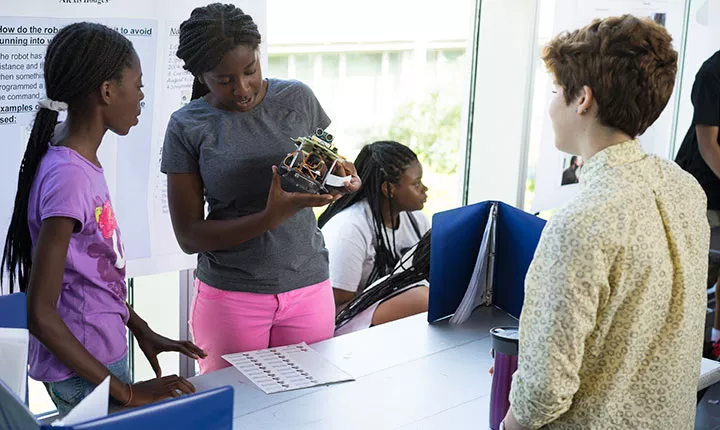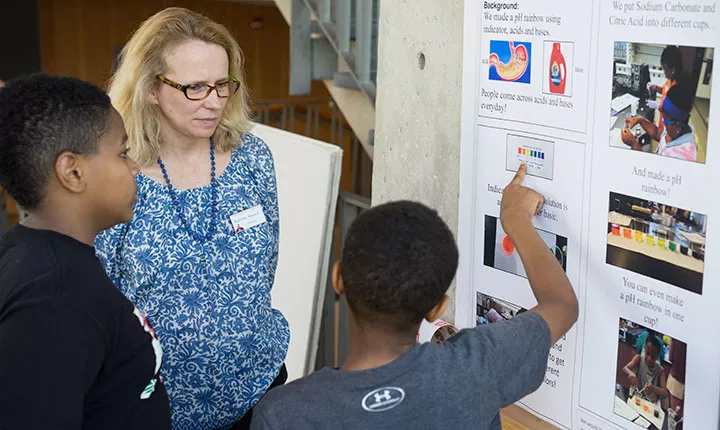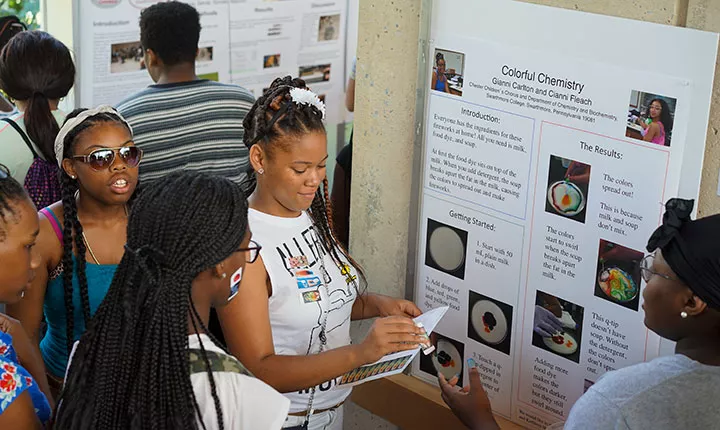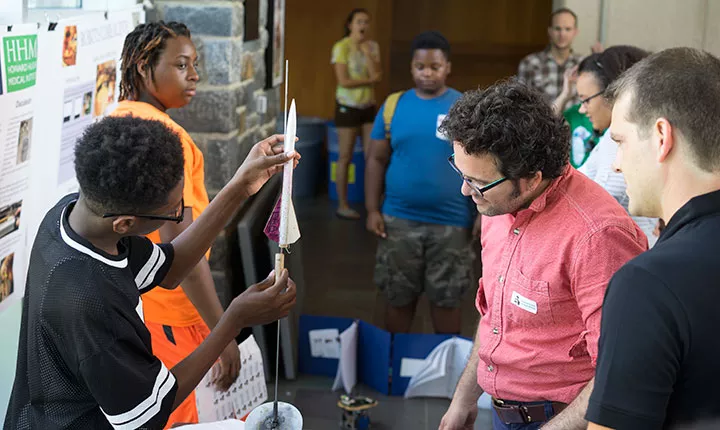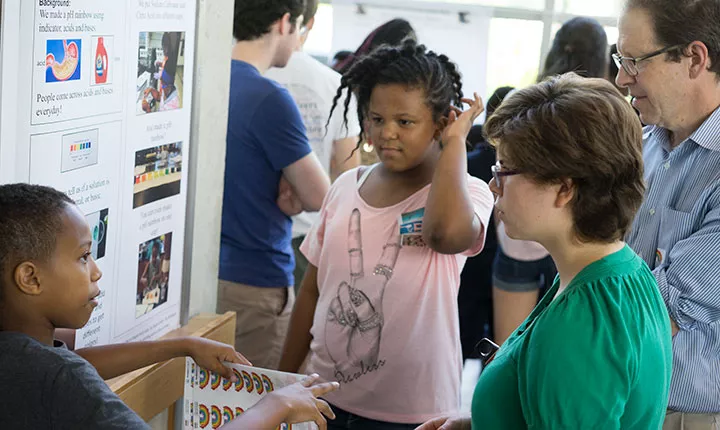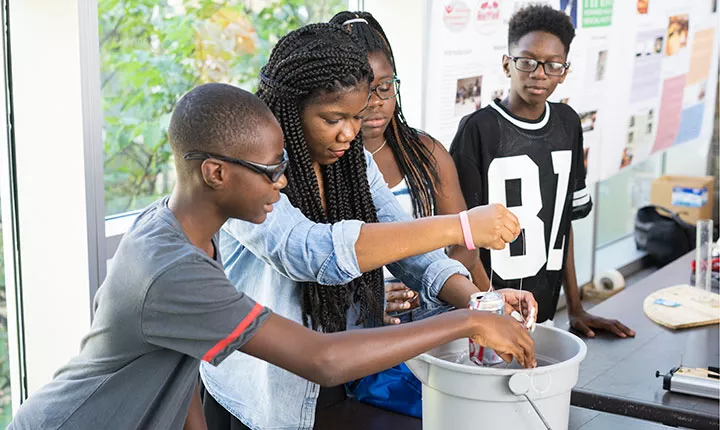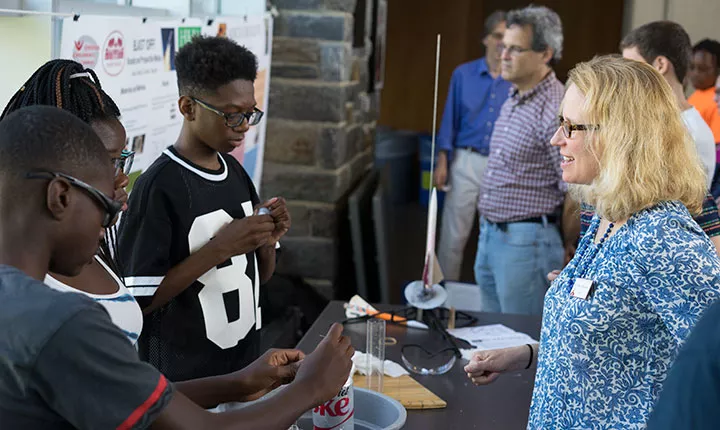Summer Workshops Combine Science, Fun for Chester Students
For students of the Chester Children’s Chorus, summer includes more than just swimming, ice cream, and playing with friends – it includes a healthy dose of science.
That’s thanks to the Science for Kids (SFK) workshops, which the College has hosted for the students of the chorus since 2004 with support from the Howard Hughes Medical Institute.
The five-week program, which was created to encourage a love of science among fifth to eighth graders, takes place across three different department labs: chemistry, physics, and biology. With this focus, the children are able to engage in a variety of topics, ranging from robotics to cell biology to chromatography. Boredom is never an issue in this fun, diverse learning environment.
"We try to make it fun, interesting, and useful. We also understand that this is a summer camp,” says Associate Professor of Physics Carl Grossman. “The kids have been in school all year and are looking for activities that are more play-like, exploring, and active.”
The workshops are run by six instructors, two faculty members, and a host of student volunteers who together provide services for over 50 Chester students divided among four different groups based on their grade level. The small student-to-teacher ratio is no coincidence. As well as developing a love of science, another goal of the program is to foster mentor and role model relationships between the children and the College student volunteers and teachers.
Eugene M. Lang Research Professor of Educational Studies Ann Renninger, who has been assessing the students’ learning and motivation, explains that the students “appreciate being introduced to phenomena that they haven't previously identified as science, and they seem to like project based, hands-on activity and enjoy interacting with the student workshop assistants a lot."
The program traditionally concludes with a science fair, which this year took place on July 23 in a jam-packed Eldridge Commons. Grossman identifies the science fair as one of the most gratifying experiences in his 25 years at the College. "The fact that these kids," he says, "who are selected for their musical talent, not for interest in science, give informed and enthusiastic science presentations is some form of success."
The projects featured at this year’s fair covered a wide spectrum of topics. One focused on surface tension, with the students dripping water onto a penny and counting how many drops it can hold. Another project involved robotics, with the children building and programming mini-bots that maneuvered through an obstacle course. Other presentations dealt with body temperature and the effect that cold water has on a person’s heart rate.
For Grossman, the important collaboration on display during the science workshops could serve as a model for other communities and higher education institutions to create a positive learning environment for all.
“I think it is important for all institutions to have a positive interaction with their surrounding communities,” Grossman says, “especially institutions of higher education, where we are training the next generation of scholars and professionals.”
